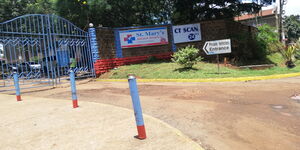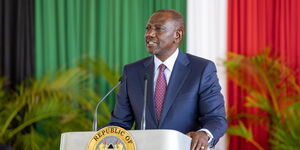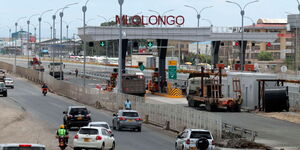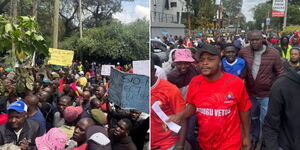The Ministry of Health has flagged off a consignment of HIV commodities at the Mission for Essential Drugs and Supplies (MEDS) to ensure seamless and adequate care for People Living with HIV (PLHIV) in the country.
The commodities, which were flagged off by Health Cabinet Secretary Deborah Barasa on Friday, March 14, include ARV drugs such as Tenofovir/Lamivudine/Dolutegravir (TLD), paediatric formulations, HIV testing kits, Early Infant Diagnosis (EID) kits, and male condoms.
According to the CS, the drugs, which are expected to last up to 21 months, will be disbursed to various health facilities across the country.
"The flagging off of this consignment from MEDS, operating as an agent of KEMSA, will ensure that all health facilities in the country are adequately stocked with key HIV health products," she stated.
"This milestone reaffirms our commitment to ensuring quality service delivery for PLHIV and strengthening HIV programming. At the heart of our efforts is the well-being of every person living with HIV," she added.
According to Kenya's health officials, the country’s HIV prevalence has dropped to 3.3 per cent, marking a 78 per cent decline since 2010.
The Ministry of Health, the Council of Governors, the National AIDS and STIs Control Programme, and the National Syndemic Disease Control Unit (NSDCU) report that by the end of 2023, 1.4 million Kenyans were living with HIV.
Currently, the annual cost of treatment of an HIV patient in Kenya is Sh15,000, and following the US government's withdrawal of funding for key health programs, challenges of securing adequate resources for HIV prevention, treatment, and care are projected to escalate in the near future.
Acknowledging the potential risk, the CS has reaffirmed the government's commitment to fabricate a sustainable solution to ensure that PLHIV continue to receive uninterrupted quality care and readily available HIV commodities, especially in remote areas.
"The supply chain supporting People Living with HIV is efficiently coordinated by KEMSA, MEDS, the Ministry of Health, and county governments. Just two days ago, government policymakers and the Council of Governors convened in Nairobi to discuss current challenges and work towards lasting solutions," she said.
During a health stakeholder meeting on Wednesday, March 12, Barasa asserted that the government had developed a health sector transitional roadmap, prioritising essential commodities, service delivery, human resources for health, and infrastructure.
Barasa also stated that the Ministry of Health was engaging with other bilateral donors to anticipate and address potential funding gaps.
She further stressed the need for increased budgetary allocations to the health sector, particularly for HIV and other programmes that were previously supported by the US.












